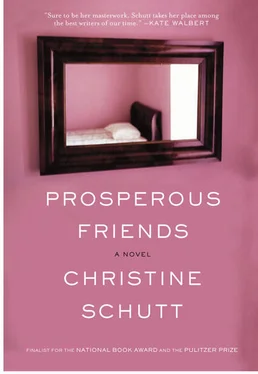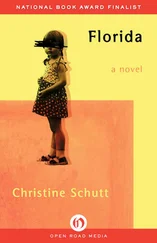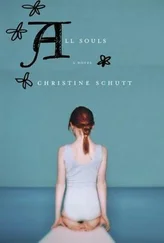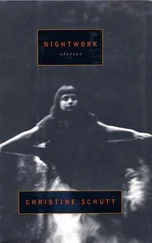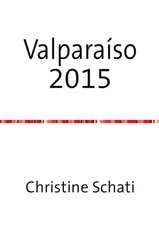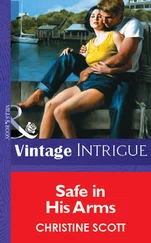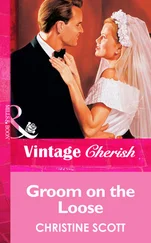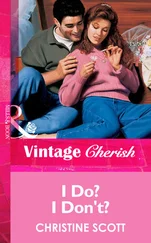Christine Schutt - Prosperous Friends
Здесь есть возможность читать онлайн «Christine Schutt - Prosperous Friends» весь текст электронной книги совершенно бесплатно (целиком полную версию без сокращений). В некоторых случаях можно слушать аудио, скачать через торрент в формате fb2 и присутствует краткое содержание. Год выпуска: 2012, Издательство: Grove Press, Жанр: Современная проза, на английском языке. Описание произведения, (предисловие) а так же отзывы посетителей доступны на портале библиотеки ЛибКат.
- Название:Prosperous Friends
- Автор:
- Издательство:Grove Press
- Жанр:
- Год:2012
- ISBN:нет данных
- Рейтинг книги:5 / 5. Голосов: 1
-
Избранное:Добавить в избранное
- Отзывы:
-
Ваша оценка:
- 100
- 1
- 2
- 3
- 4
- 5
Prosperous Friends: краткое содержание, описание и аннотация
Предлагаем к чтению аннотацию, описание, краткое содержание или предисловие (зависит от того, что написал сам автор книги «Prosperous Friends»). Если вы не нашли необходимую информацию о книге — напишите в комментариях, мы постараемся отыскать её.
Prosperous Friends
Prosperous Friends — читать онлайн бесплатно полную книгу (весь текст) целиком
Ниже представлен текст книги, разбитый по страницам. Система сохранения места последней прочитанной страницы, позволяет с удобством читать онлайн бесплатно книгу «Prosperous Friends», без необходимости каждый раз заново искать на чём Вы остановились. Поставьте закладку, и сможете в любой момент перейти на страницу, на которой закончили чтение.
Интервал:
Закладка:
Sweet Neddie, he seemed so, seemed so _________. Fill in the blank. Blank? Ned was on his way to Bermuda — he had told her as much.
Sally was talking about the view while Dinah was opening closets, saying, “I’m told there’s an old Electrolux somewhere?”
“I’m going to let you look around,” Isabel said to the women, for which they both apologized, looking around.
“I haven’t seen the house since Dad bought it,” Sally said.
Dad, Isabel heard, and she thought, Clive, and she saw that the woman uttering the word Dad was her age, and she was ill at ease again. “I’ll be in the back outside,” Isabel said. “Take your time,” she said, but whose house was this? What house? The Bridge House was unstable and teetering.
When had this started?
Weeks ago: She had seen the front door of the Bridge House open onto the ocean, and in the distance a small boat, tinier and plainer than Brueghel’s, was moving away equally indifferent to Isabel’s dilemma: how to get out of the Bridge House? Even out of the house, she felt endangered, which was stupid. She was safe indoors and out. The sea was nowhere near. Nothing was tilted but her vision of Ned, lying on the backyard bulkhead to the cellar, head tipped back, eyes shut, sculpted throat sacrificially thrust forward. The backyard was wildly untended, full of high danger. Here in the backyard was where he told her he was sorry, he felt it was best, he knew now, he was leaving. Phoebe! Phoebe! Phoebe! As You Like It was a violent comedy, though the last time she saw it, she had cried when old Adam died onstage, reverenced at the fire by the banished duke’s men.
The reward of long service is no more service.
But on to other considerations. Will Ben Harris catch up to his quick-witted wife? Of everyone involved she felt sorriest for Ben — no, she felt sorriest for herself.
*
After Sally and Dinah had gone, putting dibs on nothing, all of it crap, Isabel stood near a closet holding on to the sleeve of Ned’s shirt. A terrible stillness in her ears, some empty sound.
Only weeks ago, she had driven to a deserted house off the Reach Road and there had broken what windows in the house were left to break.
Ned had said he didn’t know what it was about her but he did not find her sexy. Maybe it was her clothes. She was so often in doubt.
“What clothes?”
“My point,” he said. “Exactly.”
How nasty it seemed now that he should have criticized her wardrobe. Isabel in the Bridge House packed up Ned’s clothes; a slouchy, dirt-colored sweater she kept. He hadn’t left much behind. The long socks knotted in his sock drawer she threw away. Anything with a netted interior, of course, was also out. Haha.
In the last week she had told him that his penis was small.
That his penis was small, he knew; but her cunt, he said, was enormous.
In whatever game it was they played, Ned and Isabel had made a point of staying even.
“You want me to pay attention,” Ned said, “I know. I’m trying.”
She curled his belt in a shoe box for charity, but his hairbrush she kept for his smell.
Why do that?
How could she explain herself to herself or to anyone? Both of them from elsewhere, they had lived in different cities. New York, the longest. Columbia first, West Ninety-eighth, later the White Street loft. Left unused, the White Street loft was an overturned fishbowl: unwashed windows in punishing southern light. Caught air — terrible — but now, night after night, to put herself to sleep, she passed through the White Street loft swiping her hand over onyx edges and surfaces that started liquidy and cool, then turned solid. The hard immovables: column, sill, headboard. Hard headboard, yes, built-in and recessed. Was that possible and was it possible in just a summer to forget? Isabel walked down the long hall past the La Jolla scenes, large black-and-white photographs of Ned and his mother, Pet, and so to sleep, but the Bridge House roused her, a sound.
“Who’s here?”
Why here? Why was she here and not in the White Street loft, but when she thought of the White Street loft, really thought of it, Ned was in the loft, and he was shoving her against the sharp cube that passed for a sofa.
She did not want to hear Ned, but she heard him, saying, “My problem is I’m so quickly bored.”
For a time, fucking, being fucked, being hurt, then not being fucked. The astonished splatter in unlikely places, red on a far white wall — oh, Isabel could be bloody and dramatic, but in the end, Ned had outdone her with his exit. I don’t want any of the stuff I’ve left. The car’s yours. Then he called a taxi to the airport. Now what?
As soon as she sold the car, she would go back to the White Street loft.
Last night she had dreamed Fife had drowned off a beach in Corfu but come back to life. Fife twisted in a dance and told her she was common, she was dull — cement had more color. How could someone as mean as Fife die? She had never believed it, his drowning, so his resurrection seemed right. Then the dream scene changed and Fife stood naked in a tub in a middle-brow bathroom, everything ordinary — a house somehow hers and he knew it. Oh, the self-consciousness she experienced in dreams! Fife stood looking out at her, making dismissive appraisals — professional name? “What profession? Unless you’re doing business with your crease.” She pulled the curtain across his face all the while seeing his face grow long and desperate, putty mobility with a hole for howling and then the tub broke apart and all turned black with the blunt conclusiveness she knew for hell. He fell before he had a chance to change expressions. Gone that fast, forever and ever. Amen. When she woke she was relieved, for how could she be afraid of someone who was dead to her?
*
At the Clam Box so many weeks ago Dinah had met Isabel for the first time. She had met Ned, too, a girl more than a boy with small, decisive features, sleepy eyes, side part. Caramel as a color of hair on him looked new; he was a sleek boy in an ad for cologne, ambivalent or shy. Dinah remembered how she had looked at Ned more emboldened than she was wont to be and afraid. Over steamers Dinah told him she wouldn’t want to be any part of any kind of interview with Clive, especially one that might turn into more, into a long story, a novel, some sort of book. He had asked would she talk to him on other subjects then, and she had said, yes — boldly. He never visited but once, and that, for the last time.
Dinah and Clive beyond the checkout at the Trade Winds grocery resumed their conversation about the Bournes. “How did you know Ned was talented?” Dinah asked.
“He told me. He told me his agent was Carol Bane.”
“Who’s Carol Bane?”
“I don’t know. He said her name in a way that made me think I should know.”
Clive, in loose clothing, scootered the grocery cart and hiked on, a kind of skateboard, stuttering down the incline to the car. Here in the parking lot, in the yellowing middle of things, some reds out there, thrashed colors, his shirt was flying open; his pants were full of air. He offered his high spirits for the ride home. The anodyne of cheer; he said he was healed and whole; he lacked for nothing. And she? Dinah? Isabel, Sally? Who needed pills?
Sally needed pills. Dinah had seen her shake some out, not count, and take them.
“They seem to be working,” he said. “She holds still longer.”
“You are so critical.”
He was not! He was lost in good feeling! He had his fox — he didn’t deserve her. What a sight in the high grass. Years earlier a suggestion of horses in motion stampeding toward the viewer, a palette of blues, whites, yellows, greens. Not much green, not like now; then his misery had been in the making of the paintings: to be bound indoors, tender treatment, on his butt all day because of a heel spur that had brought him to the ground when first he stepped on it — pain! A bone was broken.
Читать дальшеИнтервал:
Закладка:
Похожие книги на «Prosperous Friends»
Представляем Вашему вниманию похожие книги на «Prosperous Friends» списком для выбора. Мы отобрали схожую по названию и смыслу литературу в надежде предоставить читателям больше вариантов отыскать новые, интересные, ещё непрочитанные произведения.
Обсуждение, отзывы о книге «Prosperous Friends» и просто собственные мнения читателей. Оставьте ваши комментарии, напишите, что Вы думаете о произведении, его смысле или главных героях. Укажите что конкретно понравилось, а что нет, и почему Вы так считаете.
